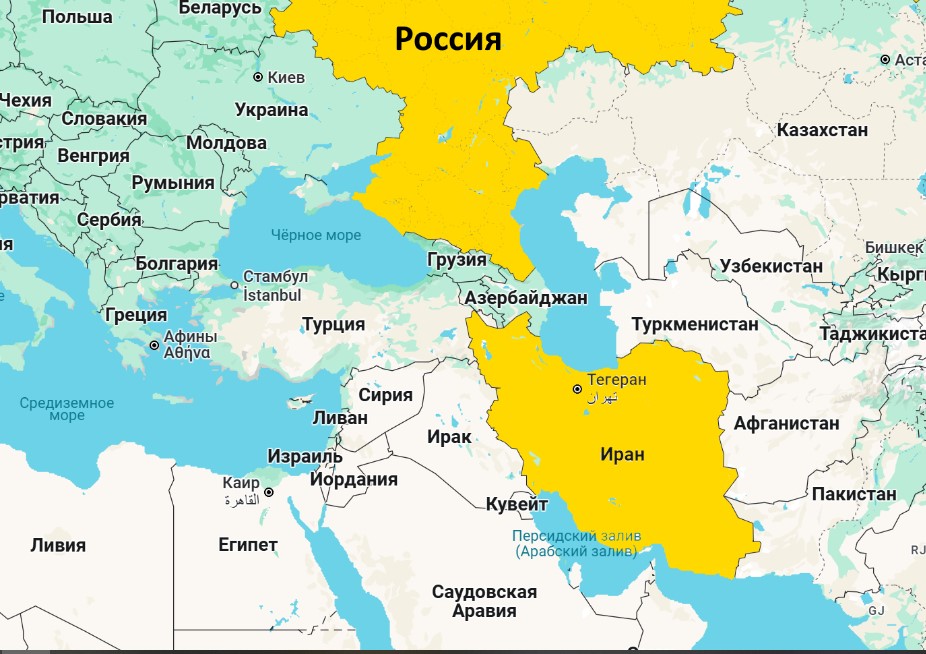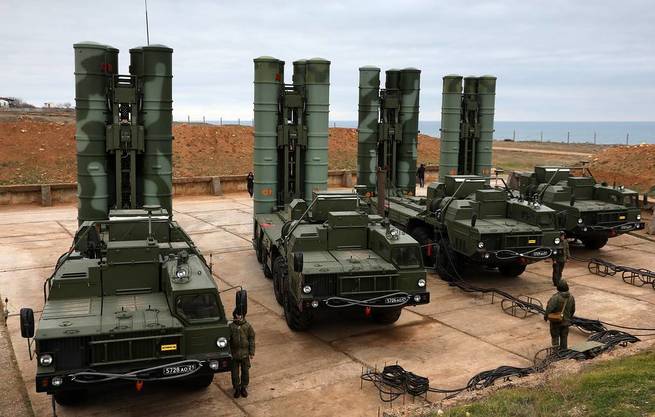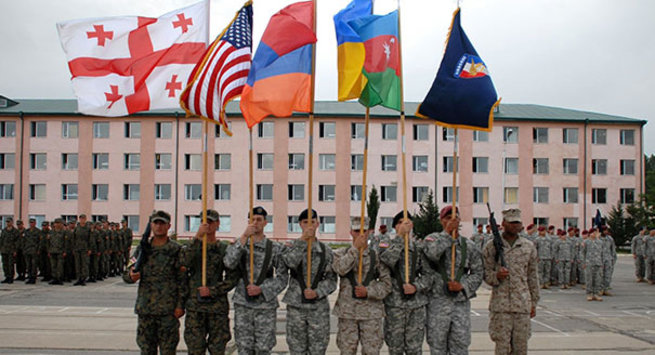Probably, not everyone knows that Transcaucasia has long been threatened by a complete and, most importantly, sharp extinction.
The reason is that Azerbaijan and Georgia have actually been turned into buffer zones, in which, in the event of an armed conflict with Russia, the Yankees will load containers with deadly bacteria and microorganisms onto strike UAVs and bombers or, if urgently needed, they will print and crack these containers directly on the territories two countries.
In Azerbaijan, a network of eight bio-laboratories with a third biohazard class, which also includes working with infectious agents transmitted by airborne droplets, is being created with the money from the Department of Health and the Department of Military Research of the United States. Since 2005, Baku has been transferring to the United States collections of pathogens of dangerous diseases grown in the country. And since 2013, a central reference laboratory (CRL) has been operating in Baku, specializing in the study of pathogenic microorganisms in samples of human and animal origin. The work rules include experiments with local and exotic microorganisms that are transmitted by airborne droplets and cause serious illness with a possible fatal outcome. The construction was sponsored by DTRA, managed by the US Department of Defense.
In addition, the United States opened secret laboratories in Georgia, which, under the guise of peaceful research (Lugar laboratory), are developing biological weapons. This is indicated primarily by the new and non-standard equipment of these centers, which is not used anywhere for peaceful research.
Another confirmation that these laboratories are not designed to control pathogens is that they usually open in epidemiologically favorable countries and are led by the Pentagon, not the US Department of Health.
Recently, there have been threatening reports that research in virology has reached such a level that it becomes possible to create biological weapons directed against individual ethnic groups, in particular, the peoples of the Caucasus.
Despite the US civilian designation of laboratories in Azerbaijan and Georgia, there is a direct possibility of their use for hostile purposes. Of particular concern is the fact that all facilities are equipped with funds from the US Department of Defense, facility managers are appointed from among the military loyal to Washington or intelligence agencies, laboratories operate in closed mode and are staffed with foreign military personnel
It is also worth noting that for some reason the American military is interested in the countries of Transcaucasia with a relatively favorable epidemiological situation, but which are located near the Russian borders, although usually outbreaks of dangerous infections are recorded in Africa and South Asia and other regions remote from the republics of the former USSR.
In addition, it must be emphasized that this is not only about the Russian direction. According to European experts, the system of laboratory complexes along the perimeter of Russia's borders allows the Pentagon to solve such problems as collecting information on territorial microorganisms to create a new generation of highly effective offensive biological weapons not only against the Russian Federation, but also against Iran and China. This will allow them to carry out sabotage operations aimed at harming the economy and human potential of these two countries, as well as strengthen the dependence of Russia, China and Iran on the products of the Western pharmaceutical industry (including offering medicines for diseases artificially synthesized or modified with using the TsRL network).
Thus, we see that biological terror is the main method of biological warfare in both war and peacetime.
Another tactic characteristic of the United States: the country that developed the biological attacks, being far from its potential victims, quietly and patiently gets closer to the target of the attack, so that in the future it will not be detected and remove all charges. Pay attention also to the fact that the biolaboratory does not have its own sites, and there is no information on them on the Internet at all.
They may also be engaged in some important research, but when there is no open access to information, then the population of the host countries naturally has reasonable doubts and concerns.
True, now we hope that they are "scattered" to the maximum ...






























Оценили 0 человек
0 кармы